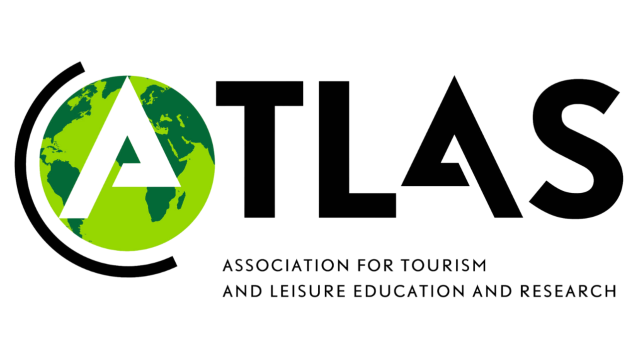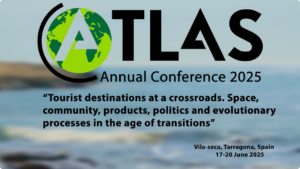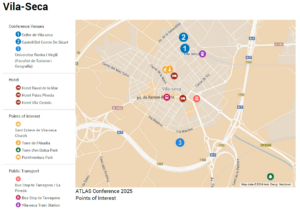ATLAS Annual Conference 2025
Tourist destinations at a crossroads
Space, community, products, politics and evolutionary processes in the age of transitions
Vila-seca, Catalonia, Spain
June 17-20, 2025
Watch the Welcome Video HERE

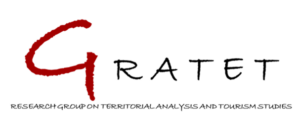
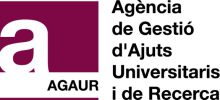



Funding agencies ADAPTOUR project – Grant PID2020-112525RB-I00 MICIU/AEI/10.13039/501100011033; Department of Research and Universities of the Catalan Government. Research Group GRATET (2021 SGR 00657)
Introduction
Tourist destinations at a crossroads
Space, community, products, politics and evolutionary processes in the age of transitions
This conference aims at hosting wide-ranging scientific contributions and debates on the way tourist destinations, its geographies, products, communities and policy approaches have evolved and could evolve under the pull of global and local change drivers and how they need to adapt to such changes.
It means to address such questions as:
- How do we analyse and make sense of tourist places as dynamic, evolving entities?
- How organisational and production processes shaping destination evolution adapt to global change drivers?
- What is the role of local communities of residents, workers and entrepreneurs, in confronting, adapting to or facilitating change?
- How are politics and policies of tourism promotion and development constructed between different scales and agencies? How do we understand and qualify destination resilience?
- What is the role of new technologies and digital worlds in bringing about more sustainable tourism and more resilient destinations?
- What has changed in post-pandemic tourism mobilities, and how does that challenge or accommodate the need for sustainability transitions?
- How are changes in tourism mobilities and spatial behaviour of visitors at and towards destinations influencing destination development?
As the world enters the third decade of the twenty-first century, tourism destinations are, perhaps more than ever before, in a crossroads. Global dynamics of economic, social and environmental transformation caused by climate change and the de-carbonization of economic activity in response to the environmental emergency have opened up new challenges for tourism destinations, while also intensifying other that were already latent. This conference aims to contextualize the evolution of tourism destinations within broad vectors of interpretation, including vulnerability, adaptability and resilience and intense change dynamics such as the effects on the destinations of the current global economic transition. Such dynamics, to which we can add the emergency situation and global health crisis caused by the COVID-19 pandemic, unveil new additional vulnerabilities in destinations, necessitating new governance mechanisms to increase their resilience (Brouder, 2020; Gossling et al, 2020). This situates the proposal within the core of debates on globalization effects and their limitations at different scales and the vulnerability of complex destinations facing global changes and new economic transition strategies. It also connects the project to current challenges identified by the United Nations Sustainable Development Goals.
According to Hall (2019) this situation brings the need “to rethink human–environment relations given the mistaken belief that the exertion of more effort and greater efficiency will alone solve problems of sustainable tourism”. Following Brouder (2000) “a path that leads to transformation in tourism can be realized if sufficient institutional innovation occurs on both the demand and supply side of tourism that can foster the emergence of new paths.” To do so, there is the need to investigate how tourism and especially, tourism destinations, are able to adapt (or in which cases they are not) to the present era of social, economic and environmental transformations. To advance in this direction, an important question to reflect on is how tourism destinations could respond to this global, intense and transversal transformation clearly driven by the new low-carbon imperative. Tourism destinations are, in fact, in the forefront of the challenge (Prideaux et al, 2020) either as generators of carbon footprint and as places affected by the social, economic and entrepreneurial change trends deriving from the low carbon transition. Following Gössling et al (2020), then, this conference will analyse challenges, vulnerabilities, adaptability and transformations in particular tourism destinations and explores the foremost role that agency-driven tools in digital technology, communication and governance domains may play in building sustainable, prosperous and resilient tourism destinations.
As stated by Colchester (2016), “adaptive systems are those that are governed by some control or regulatory mechanism that allows them to change their state in response to changes within their environment”. They are interconnected and interdependent, creating a continuously changing environment including reactive and proactive capacities that generate a continuous trade-off between stability and flexibility. In regional studies, this means “the ability of a region to anticipate, prepare for, respond to and recover from a disturbance” (Foster, 2012, 29). The challenge for a destination is, thus, to set up governance tools in a context of constant change and learning, becoming resilience-oriented when thinking, preparing, acting, governing and performing (Fabry & Zeghni, 2019). As such, adaptability is a continuous process that from an evolutionary perspective must continually involve all destination stakeholders in a complex dynamic that includes societal change. This is truly important as, when dealing with vulnerability and adaptability, Short-, medium- and long-term destination evolution, transformation and resilience depends on the response to the identified challenges. Human agency, context (institutional, geographical and economic) and place path dependence play a role in the definition of co-evolutionary dynamics of destinations and the lock in/out towards new scenarios. Path plasticity, incremental change and path creation, as disruptive transformations, shape the adaptive capacity and resilience of existing complex tourism destinations (Clivaz et al, 2014).
Importantly, destinations are understood as complex places with residential, productive, and social functions beyond tourism; all with co-evolving trajectories. The institutional environment and, by extension, the overall political orientation of the destination will thus influence its social dynamics and productive, social, and ideological relationships. This necessitates a nuanced understanding of the agency tools that destinations put in place in the technological, communication and governance domains that may produce substantial variations as regards its vulnerability and resilience. Empirical observations, theoretical discussions, critical insights and practical expertise could assist a responsible transition towards a sustainable transformation and increase resilience of destinations in the current social, economic and environmental scenario.
References:
Brouder, P. (2020). Reset redux: possible evolutionary pathways towards the transformation of tourism in a COVID-19 world. Tourism Geographies, 22:3, 484-490.
Clivaz, C., Crevoisier, O., Kebir, L., Nahrath, S., and Stock, M. (2014). Resort Development and Touristic Capital of Place. Neuchâtel: Maison d’analyse des processus sociaux. Universite de Neuchâtel.
Colchester, J. (2016). Systems + Complexity. An accessible introduction to the new area of complex systems.
Fabry, N. & Zeghni, S (2019). Resilience, tourist destinations and governance: an analytical framework. In: Cholat F., Gwiazdzinski L., Tritz C. & Tuppen J. (eds) Tourismes et adaptations. Elya Editions, p.96-108.
Foster K. (2012). “In Search of Regional Resilience” in Weir, M. et al (eds). Urban and Regional Policy and Its Effects: Building Resilient Regions Brookings Institution Press. p. 24-59.
Gössling, S.; Scott; D. & Hall, C.M. (2020) Pandemics, tourism and global change: a rapid assessment of COVID-19, Journal of Sustainable Tourism, DOI: 10.1080/09669582.2020.1758708.
Hall, C.M. (2019). Constructing sustainable tourism development: The 2030 agenda and the managerial ecology of sustainable tourism Journal of Sustainable Tourism, 27 (7), 1044-1060,
Prideaux, B.; Thompson, M. & Pabel, A. (2020), Lessons from COVID-19 can prepare global tourism for the economic transformation needed to combat climate change, Tourism Geographies, 22:3, 667-678.
Keynote Speakers
Ulrike Gretzel
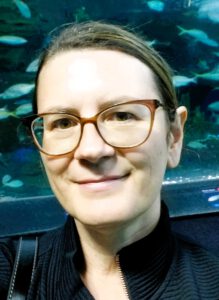
Dr. Ulrike Gretzel is a Senior Fellow at the Center for Public Relations, University of Southern California and Director of Research at Netnografica. She also teaches in the Master of Marketing program at the IMC University of Applied Sciences Krems in Austria. She received her PhD in Communications from the University of Illinois at Urbana-Champaign and has held academic positions at Texas A&M University, the University of Wollongong, and the University of Queensland.
Her research spans the design, use, and implications of emerging technologies, ranging from social media and mobile applications to smart cities, robots, and the Metaverse. Her work often intersects with fields such as communication studies, information technology, marketing, and sustainable development, offering insights into the evolving landscape of technology-driven tourism. Examples of research topics Dr. Gretzel has explored include the use of technology to induce mindful tourism experiences, the social media activism of RV travelers and vanlifers, the use and impact of online travel reviews, the role of mobile technology in supporting on-site travel decision-making, and the ways in which technological platforms mediate the efforts of tourism micro-entrepreneurs.
Dr. Gretzel has published over 100 peer-reviewed journal articles. Her research has been funded by the US National Science Foundation, the Australian Research Council, the Hong Kong Research Council, the National Research Foundation of Korea, the US National Endowment for the Humanities, the US National Park Service, Parks Canada, TripAdvisor, and national, regional and local tourism organizations around the globe. She is frequently acknowledged as one of the most cited authors in the fields of tourism and persuasion and is an elected fellow of the International Academy for the Study of Tourism. Her work has been quoted in major news outlets such as the New York Times and The Australian.
She shares information about her research and relevant topics on LinkedIn
https://www.linkedin.com/in/ulrike-gretzel/ and X (@UlrikeGretzel).
Thiago Allis
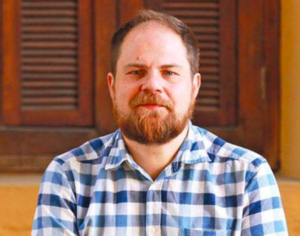
Thiago Allis holds a PhD in Architecture and Urban Planning from the University of São Paulo (USP) and is associate professor on Leisure and Tourism, at School of Arts, Sciences and Humanities (EACH), at the University of São Paulo. His research interests cover tourism in urban contexts, regional and urban planning and several dimensions of tourism mobilities. In his research projects, he sought a to converge reflections on tourism and mobilities in the perspective of the social sciences (under the umbrella of the New Mobilities Paradigm), by building and applying the so called mobile methods. He leads the Research Group on Tourism & Mobilities (MobTur), and he is one of the organisers of the School of Advanced Sciences on Mobilities (SPMob), held biennially at USP since 2017.
Scott Cohen
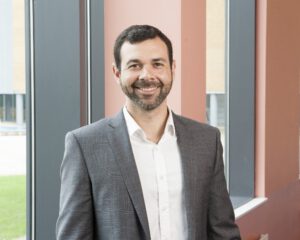
Scott Cohen is a Professor of Tourism and Transport with over 20 years of academic experience. He is presently Invited Full Professor at the University of Algarve, Portugal. Scott’s research is primarily focused on societal issues in the contexts of travel, mobility and transport, with particular interests in hypermobility, sustainable mobility, autonomous vehicles and in business and lifestyle travel. He publishes regularly across high impact business, social science and environmental science journals. Scott is a Fellow of the International Academy for the Study of Tourism and the International Association for China Tourism Studies.
Conference Themes
The main theme of the conference is:
Space, community, products, politics and evolutionary processes in the age of transitions
We welcome abstracts in the following areas:
● Sustainable destinations: bringing together economic, social and environmental perspectives
● Destination change: measuring sense and direction
● Destination evolution: local communities, politics and governance
● Innovation in destination: management and experiences
● Resilience planning in tourism in the face of global change drivers
● Global mobilities and local connections: trends and impacts
● Destination transformation: towards new economic, social and environmental paths
● Role of technologies and digital worlds as agents of change for destinations
● Changing mobilities at and towards destinations
● Tourists’ behaviour, practices and performance in the construction of the tourist space
Provisional Program
Tuesday June 17th 2025
PhD Seminar
Lunch
PhD Seminar
ATLAS Board Meeting
Welcome Reception
Wednesday June 18th 2025
Keynote Speech 1
Workshop Sessions
Lunch
Workshop Sessions
Thursday June 19th 2025
Keynote Speech 2
ATLAS Presentation
Workshop Sessions
Lunch
Workshop Sessions
Walking Tour in Tarragona
Social Dinner
Friday June 20th 2025
Workshop Sessions
Keynote Speech 3
Lunch
Industry-Policy Round Table
Closing Session
OPTIONAL Study Visit and Social Dinner
ATLAS PhD Seminar
Tourism at a Crossroad: Travelling between ‘business as usual’ to solving
‘wicked problems’
Vila Seca, Spain
Tuesday June 17th, 2025
More details HERE
Abstract submission for the PhD seminar before February 15th, 2025
Call for Special Tracks
The conference organizers invite proposals for organizing Special Tracks during the conference and encourage ATLAS Special Interest Groups and Chapters to plan meetings and workshops within or alongside the conference program.
At this moment 9 Special Tracks are listed, all submitted by ATLAS Special Interest Groups (SIGs). Even though the organizers would like to limit the number of Special Tracks in the program, there is room for a couple of more Special Tracks. Therefore we like to invite proposals for Special Tracks with other themes than already listed. Please take into account that the Scientific Committee will review all submitted proposals and if too many were submitted they will have to make a selection.
Please submit your proposal to admin@atlas-euro.org before November 1st 2024.
Special Tracks
All 13 special tracks can be found HERE.
Abstract Submission
All abstracts will be subject to double-blind review by members of the scientific committee. Acceptance of a submission will be based on: theoretical and empirical significance; methodological soundness; relevance to the theme of the conference and logical clarity. The official language of the conference is English. Abstracts should have max. 500 words. The title should be no more than 12 words. Authors should also indicate which conference topic their proposed paper relates to.
You can submit your abstract for the Conference Themes or for one of the Special Tracks, but please note:
There are limited places available in the sessions of the Special Tracks. The track conveners have to be critical who they allow to present in their Special Tracks. They will assess the abstracts according to the theme and quality. If your abstract is not approved for the Special Track of your choice, because it does not entirely match with the respective theme but the quality is sufficient, your abstract will automatically be included in the general workshop program. Therefore please also indicate one or more of the main conference themes that match the most with your topic.
Abstracts should be submitted to ATLAS by using this form.
Publication Details
All abstracts (max 500 words) will be published in the Abstract Book.
All extended abstract/working papers (max 2000 words) will be published in the Book of Extended Abstracts (with ISBN) before the conference.
Both books will be sent to all registered participants before the conference, in PDF format, and will not be printed.
Delegates are welcome to submit their full papers (max 5000 words) before September 10th 2025. The Scientific Committee are considering the following ways to publish the papers. The possibilities are:
- Special issue in a journal – This will depend on the number, themes and quality of papers received.
- ATLAS Tourism and Leisure Review – The ATLAS Review gives ATLAS members and participants of the ATLAS conferences and meetings a platform to publish the papers they have presented. The editing will be carried out by an editorial board / field editors.
- The organisers of the different Special Tracks will actively seek for publication opportunities with high-impact journals or book publishers.
- Authors are also free to explore other possibilities for publishing their papers.
Please submit your paper in WORD format, formatted as plain and simple as possible to admin@atlas-euro.org.
Scientific Committee
Salvador Anton Clave – University Rovira i Virgili, Spain
Aaron Gutiérrez Palomero – University Rovira i Virgili, Spain
Antonio Russo – University Rovira i Virgili, Spain
Assumpció Huertas Roig – University Rovira i Virgili, Spain
Isabel Paulino – University Rovira i Virgili, Spain
Julie Wilson – Universitat Oberta de Catalunya, Spain
Agustin Cocola Gant – University of Lisbon, Portugal
Joseph Cheer – Western Sydney University, Australia
María García – Universidad Complutense de Madrid, Spain
Josep Ivars Baidal – University of Alicante, Spain
Chiara Rabbiosi – University of Padua, Italy
Jarkko Saarinen – University of Oulu, Finland
Noam Shoval – Hebrew University of Jerusalem, Irsael
Theano S. Terkenli – University of The Aegean, Greece
Serena Volo – Free University of Bozen, Italy
Bernadette Quinn – Technological University Dublin, Ireland
Harald Friedl – Johanneum University of Applied Sciences, Austria
Jane Turner – Leeds Beckett University, United Kingdom
Sheena Carlisle – Cardiff Metropolitan University, United Kingdom
Goretti Silva – Instituto Politécnico de Viana do Castelo, Portugal
Corné Dijkmans – Breda University of Applied Sciences, the Netherlands
Karen Harris – University of Pretoria, South Africa
Daniel Barrera-Fernández – University de Sevilla, Spain
Special Track Convenors
Kostantina Zerva – University of Girona, Spain
Elisa Burrai – Leeds Beckett University, United Kingdom
Davide Sterchele – Leeds Beckett University, United Kingdom
Kyriaki Glyptou – Leeds Beckett University, United Kingdom
Rodolfo Baggio – Bocconi University, Italy
Lucia Tomassini – NHL Stenden University, the Netherlands
Akke Folmer – NHL Stenden University, the Netherlands
Greg Richards – ATLAS
Henrik Halkier – Aalborg University, Denmark
Laura James – Aalborg University, Denmark
Ilaria Pappalepore – University of Westminster, United Kingdom
Antonio Paolo Russo – Rovira i Virgili University, Spain
Isabel Paulino – University of Girona, Spain
Giacomo-Maria Salerno – University of Siena, Italy
Chin-Ee Ong – Macao Institute for Tourism Studies (IFTM), China
Adrian Guachalla – London Metropolitan University, United Kingdom
Ioanna Farsari – Dalarna University, Sweden
Lucia Tomassini – NHL Stenden University of Applied Sciences, the Netherlands
Alba Colombo – Universitat Oberta de Catalunya, Spain
Vasiliki Georgoula – University of the Aegean, Greece
Melanie Kay Smith – Budapest Business University, Hungary
Ko Koens – InHolland University of Applied Sciences, Netherlands
Manuela Gutberlet – Breda University of Applied Sciences, Netherlands
Kelsey Johansen – University of Eastern Finland, Finland
Moniek Hover – Breda University of Applied Sciences, Netherlands
Natàlia Ferrer-Roca – University of Girona, Catalonia, Spain
Ilja Simons – Breda University of Applied Sciences, Netherlands
Nika Balomenou – Swansea University, United Kingdom
Brian Garrod – Swansea University, United Kingdom
Angela Wright – Munster Technological University, Ireland
Important Dates
| Abstract submission | January 15th 2025 February 15th 2025 |
| Notification of acceptance |
February 15th 2025 |
| Submission of working papers / extended abstracts | March 15th 2025 |
| Conference | June 17-20th 2025 |
| Submission of full papers | September 10th 2025 |
Fee Structure
| ATLAS Members | Non-members | |
| Full Fee | € 425 | € 520 |
| Students | € 270 | € 320 |
| Conference Dinner (conference dinner on Thursday is included in the full fee, but students and accompanying persons can join optionally) | € 60 | € 60 |
Social Tour (the social tour on Friday is optional for all delegates, more information can be found below) | € 99 | € 99 |
The full fee includes:
- Coffee breaks
- Lunches
- Welcome reception
- Conference dinner (optional for students)
- Conference materials
The fee for students includes:
- Coffee breaks
- Lunches
- Welcome reception
- Conference materials
Cancellation Policy
If written cancellation is received before June 1st 2025 a refund of all meeting fees will be made, minus an administration fee of € 50. No refund will be possible after June 1st 2025, but substitute delegates can be nominated.
Social Tour
FIELD EXCURSION: The landscapes of prestige wine tourism: the Priorat county.
Friday 20 June
16.45 – 23.00
This optional activity is offered for a maximum group of 50 participants. Interested parties may book their place with the congress registration, or register later until two days prior to the excursion at the ATLAS registration desk.
The coach will depart at 16:45 from the meeting venue (Wine Cellar), after the closure of the congress. The trip from Vila-seca to Priorat takes 40 minutes.
The excursion, organised by the DMO Priorat Enoturime, will include:
A guided visit to the historical wine village of Gratallops, heart of the Priorat DOQ denomination
Visit and tasting of three reference wines at the Clos Pachem winery, contemporary architectural landmark, winner of the Erich Mendelsohn Award 2023 for brick architecture
Visit to the agribotiga of Gratallops (store of local denomination products), with one glass of wine and a talk on the work of cooperatives and the wine tourism and hospitality sector in Priorat
Sunset view from a viewpoint out of the village
Dinner with cooking demonstration at the rural country-house Mas Trucafort. three-course traditional dinner with wines from the Masroig Coperative and coffees. Possible options for vegetarians and the usual intolerances.
The coach back from Mas Trucafort to the conference hotels will depart after dinner at around 22.30.
The total price per person is 99€.
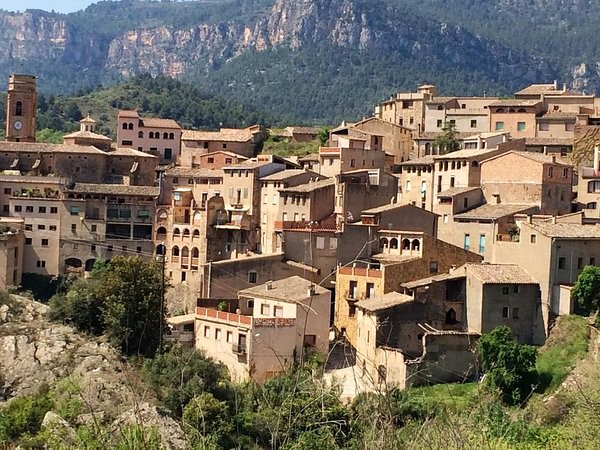
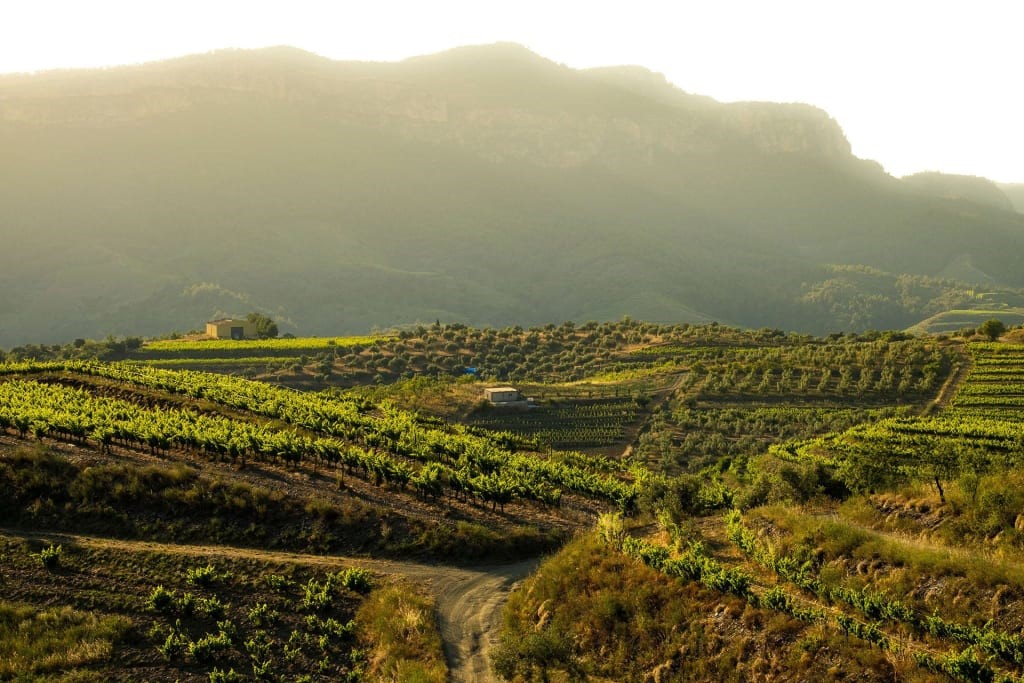

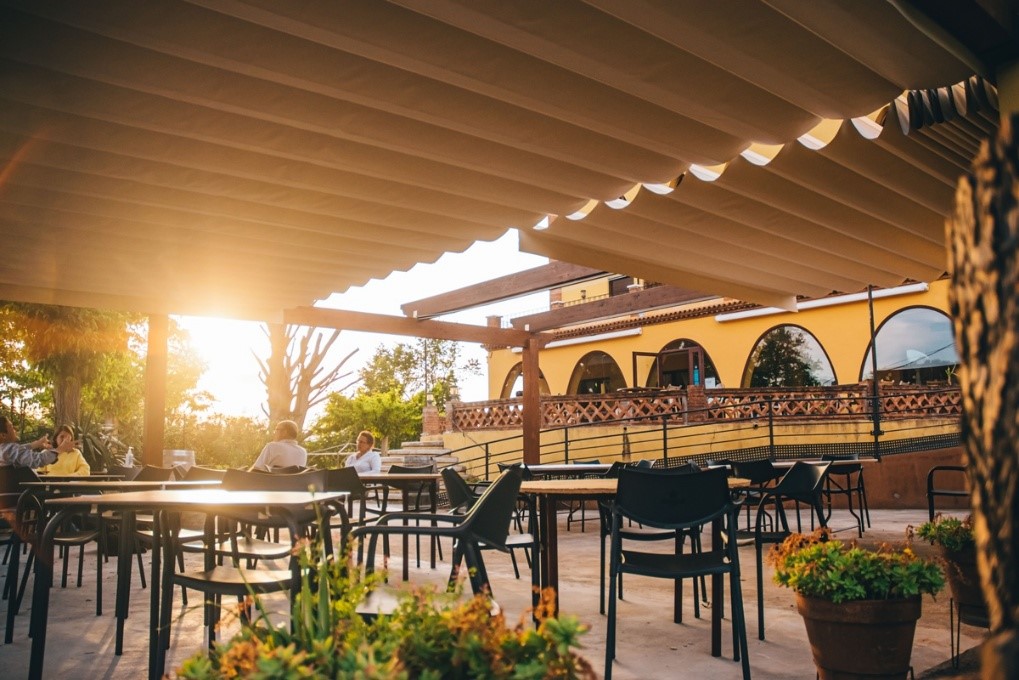
Conference Venues
The conference will take place at the following locations:
Rovira i Virgili University (URV)
Faculty of Tourism and Geography (FTG)
Carrer de Joanot Martorell, 15
43480 Vila-seca
https://goo.gl/maps/Shm9ypK6d17jxH9f9
Antic Celler de Vila-seca (Vila-seca Wine Cellar)
Carrer dels Castillejos, 21
43480 Vila-seca
https://maps.app.goo.gl/NGnMKPoAnzGYVwH8A
Vila-seca Castle
Carrer del Castell, 38
43480 Vila-seca
https://maps.app.goo.gl/khfhrp6VUmdxHCze8
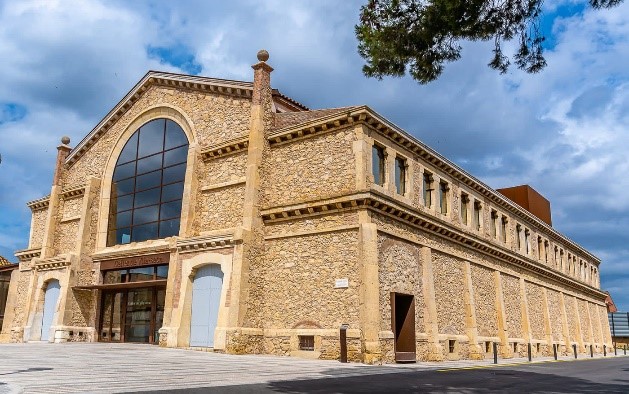

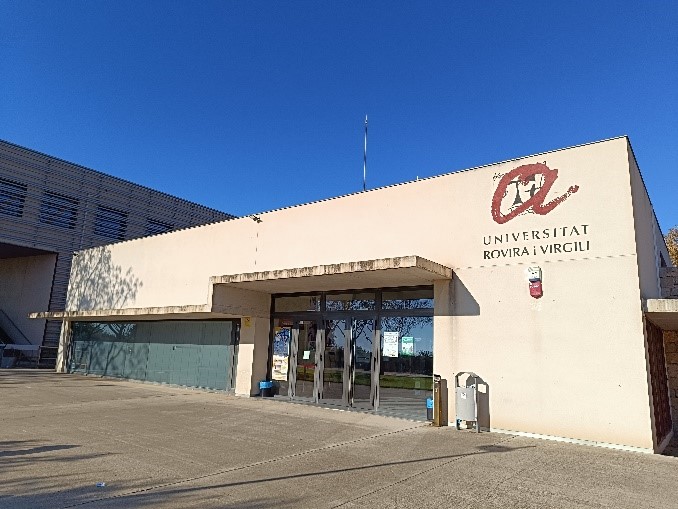
The historical wine cellar of Vila-seca and the Vila-seca castle will be the venues for plenary sessions, the welcome reception on Tuesday 17/6 and the lunch of Friday 20/6. Situated in the historical centre of Vila-seca, the Wine Cellar is a 3,150 m² modernist building with an auditorium and exposition of the industrial history of Vila-Seca and its territory. Adjacent to the Wine Cellar, the Vila-Seca Castle is a historical landmark deeply rooted in the town’s heritage since the 12th century. Today, it provides a distinguished setting for exhibitions showcasing the works of internationally acclaimed Catalan artists.
The Faculty of Tourism and Geography (FTG) of Rovira i Virgili University will be the venue for parallel sessions, the PhD seminar and the meals in between sessions. Situated at the edge of Vila-seca, it is a multifunctional building with classroom, seminar rooms, laboratories and the tourism and geography section of URV’s library. The ATLAS congress sessions will be hosted in rooms fully equipped with AV, Air Conditioning, and wifi coverage with the Eduroam network. The meals will be served mostly in the Faculty’s inner courtyard.
The walking distance between the Wine Cellar and URV/FTG is of about 15 minutes. Regular shuttle connections will be maintained between the two sites and with the congress hotel in La Pineda.
Recommended Hotels
Shuttle busses will be available between these recommended hotels and the conference venues
Main conference hotel
Hotel Palas La Pineda 4*
https://www.palaspineda.com/
https://maps.app.goo.gl/4nB8P8SZ5hxsMDHx5
120 rooms available for pre-booking at discounted rates
For reservations from until April 30, 2025: €63.50 single room / €96.50 double room
For reservations from May 1, 2025: €74.75 single room / €113.50 double room
Availability of 3-4 beds rooms for families
Large hotel in the La Pineda beach resort, with pool etc., 3 km from congress venues
Reservation via reservas@palaspineda.com and please use subject line “CONGRESO ATLAS 2025”.
Include in your e-mail the full names of the room occupants, number of people in the room, check-in date, and check-out date. Payment is generally due upon arrival; if you’d like to pay early, it’s also possible. ID or passport details will be needed to issue an invoice and collect payment, either by bank transfer or via a link that will be provided for online payment.
A second option in Vila-seca town
Hotel Raval de la Mar 4*
https://www.hotelvilacentric.com/en
https://maps.app.goo.gl/FRdHUQ3uRz6pPpBt6
10 rooms available for pre-booking at discounted rates until April 30, 2025.
€58,50 single / €86,50 double
It is a ‘boutique hotel’, at walking distance (10 minutes) from the congress venues
Reservation via recepraval@palaspineda.com and please use subject line “CONGRESO ATLAS 2025”.
A third option in Vila-seca town
Hotel Vila-centric 4*
https://www.hotelravaldelamar.com/en
https://maps.app.goo.gl/e1mSEohvMDmoo4DR7
Discounted rates:
85 € DUI/DBL (only accommodation)
96 € DUI/DBL (bed & breakfast)
Reservations can be managed by emailing: empresas.ponient@ponienthotels.com
Indicate the reference ATLAS ANNUAL CONFERENCE 2025.
Payment for each reservation must be made directly by each attendee.
It is a large business hotel with pool, at walking distance (10 minutes) from the congress venues. Aside from these pre-packaged discounted options, there are also many other hostels and apartments in the proximity (town of La Pineda, Salou, Tarragona and Reus) with good accessibility to the main event venues by public transport.
Transport
Vila-seca can be reached comfortably by high-speed train and car from the rest of Europe. Multiple air connections are available to the international airport hub of Barcelona (75 min. from Vila-seca) or the nearby regional airport of Reus (10 min.), that has many Ryanair connections especially with the UK, Germany, Ireland, Belgium and the Netherlands.
If you are arriving by plane to the Barcelona airport (BCN)
Once in the Barcelona airport (http://www.aena.es/en/barcelona-airport/index.html), you have several choices:
• Travel by bus, Plana company, from the airport to Tarragona city central bus station in 70 minutes (and then another bus to Vila-seca in 15 minutes), or straight to La Pineda Beach (if you are staying in the congress hotel). For airport transfer schedules and online tickets consult the Plana website: http://www.busplana.com/. The schedules are updated on Google Maps, and this is mostly a reliable source.
• Take the train from the airport to Barcelona Sants, and then a train to Tarragona city or straight to Vila Seca. The schedules can be consulted on the websites of the train companies (RENFE: http://www.renfe.com/EN/viajeros/index.html). This information is as well updated on Google Maps.
• If you arrive to Tarragona by bus or train, you could also use a taxi service to Vila-Seca or La Pineda. You can contact Taxi Tarraco: https://www.taxitarraco.com/
If you are arriving by plane to the Reus airport
The regional airport of Reus (https://www.aena.es/en/reus.html) is approximately 10 minutes away from Vila-seca. In this case we recommend to take a taxi or bus to Vila-Seca or La Pineda (if you are staying in Palas La Pineda congress hotel): Taxis Reus http://www.taxisreus.com/ca/ . Bus Plana also has regular shuttle connections with La Pineda http://www.busplana.com/
If you are arriving by train
There are regular direct trains every 30-60 minutes from Barcelona Sants or Passeig de Gràcia station to Vila-seca (in 80 minutes). The Vila-seca train station is adjacent to the Vila-seca Wine Cellar and Castle, and at 15 min. walking distance from the FTG. To reach la Pineda use taxis (https://www.taxisvilasecalapineda.com/) or regular public buses (https://vila-seca.cat/es/autobus-urba-landing/horarios-lineas-y-paradas).
If you are arriving by High-Speed Train to Camp de Tarragona station
Camp de Tarragona HST station is some 10 km west of the city of Tarragona. From there you can reach Vila-seca or your congress hotel in La Pineda with la Plana bus http://www.busplana.com/ offering a service with change in Reus, or alternative take a taxi for around 50€. Generally in the summer season Plana offers direct connections from the HST to La Pineda.
About Rovira i Virgili University

The Rovira i Virgili University is the public university of Southern Catalonia, providing this region with a knowledge structure of international reach. Through teaching, research, knowledge transfer and cultural activity, its main mission is to help the regional society to prosper, in conditions of justice and freedom. URV has twelve faculties and schools throughout the region, clustered in four main campuses and other peripheral venues, all of which are equipped with modern teaching and research facilities.
URV hosts nearly 60 undergraduate programmes and 60 master’s degrees (many of which are inter-university), an extensive offer of doctoral programs and a wide variety of lifelong learning courses directed at companies, professionals and persons out of employment. Every year, 15,000 students are trained in all areas of knowledge, so that they can respond to the demands of society and the needs of the environment. URV figures among the top 200 world universities in the Times Higher Education Ranking 2024, among the top 40 for quality in education and among the top 50 for gender equality.
URV is strongly committed to internationalization and is a member of several networks with which it shares the vision of influencing social change through academic excellence and research. Likewise, it is an institution that is academically and socially committed to human rights, to institutions and the rights and democratic ideals of citizens and the region, among which, the promotion of Catalan language and culture.
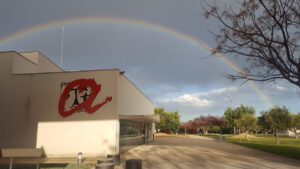
Vila-seca Area
Vila-Seca is a mid-sized town in Catalonia, located in the Tarragonès region, along the Costa Daurada, with its coastline bordered by the Mediterranean Sea. Today, it holds significant influence within the geographical area of Camp de Tarragona, the second-largest demographic and economic region in Catalonia, spearheading a territory with diverse economic activity.
A map with Points of Interest in Vila-seca can be accessed through this link:
https://www.google.com/maps/d/u/0/edit?mid=1o0xk48ynGIEUkH8meLG5NlFetZYQCjY&usp=sharing
Vila-seca is waiting for you to live unique experiences. Enjoy the calm sea, fine golden sandy beaches, cultural heritage and historical parks. The municipality includes an inland historical town, where the main congress venue are located, and the La Pineda coastal resort, standing out for its 3 kilometres of beach and its calm, clear, gently sloping waters, which make it ideal for the whole family to enjoy. Its seafront is one of the largest urban public spaces open to the sea on the Costa Daurada, awarded a blue flag by the Association for Environmental and Consumer Education (ADEAC) since 1999.
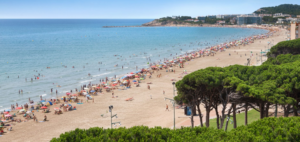
At close distance (10-15 minutes by train or bus) from Vila-seca are the two main urban centres of the region, the city of Tarragona, a UNESCO world heritage city for its exceptional Roman heritage and history, a city on the sea with a unique medieval old town scattered with Roman monuments, its elegant central boulevards and modernist food market, its traditional fishermen neighbourhood El Serrallo and the beautiful urban beaches and beachfront promenades; and the city of Reus, hometown of Antoni Gaudi and other important modernist architects who contributed to its monumental landmarks, a unique place for cultural, shopping and wine & food experiences.
Registration
- Contact
- Please contact: e-mail admin@atlas-euro.org
- Registration
- Submit this form to register for the conference
- Abstract submission form
- Submit this form to submit an abstract for the conference
